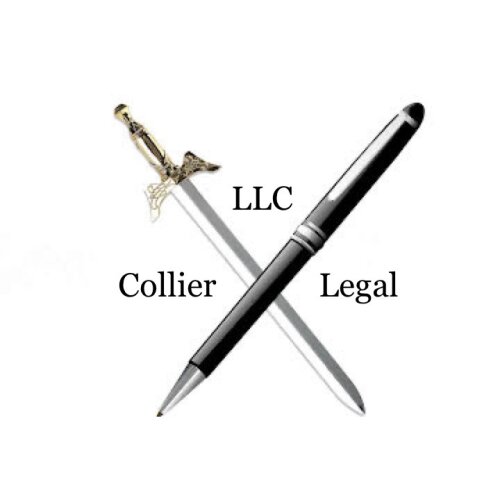Best Intellectual Property Lawyers in United States
Share your needs with us, get contacted by law firms.
Free. Takes 2 min.
Or refine your search by selecting a city:
List of the best lawyers in United States
United States Intellectual Property Legal Questions answered by Lawyers
Browse our 1 legal question about Intellectual Property in United States and read the lawyer answers, or ask your own questions for free.
- Intellectual property
- Someone in india is using my children's photos on a court case that I have nothing to do with
-
Lawyer answer by Ahire & Associates
You can file a complaint with the cyber cell of the police department if the photos were obtained or used in a manner that violates privacy laws. The Information Technology (IT) Act, 2000, includes provisions for the protection of privacy.Please...
Read full answer
About Intellectual Property Law in United States
Intellectual Property (IP) law in the United States encompasses a legal domain aimed at safeguarding creators and owners of original works and inventions. This includes a wide range of creative outputs such as inventions, literary and artistic works, symbols, names, images, and designs used in commerce. The main categories of IP include patents, trademarks, copyrights, and trade secrets. IP laws are in place to ensure that creators can protect their work from unauthorized use and to provide them with economic benefits. The United States Patent and Trademark Office (USPTO) and the United States Copyright Office are primarily responsible for overseeing these areas.
Why You May Need a Lawyer
There are several scenarios where you might need legal assistance in the field of Intellectual Property:
- When you are considering filing a patent application for an invention, to ensure that the application is structured correctly and meets all legal requirements.
- If you are an artist or a writer, to help protect your creative works from unauthorized use by securing copyrights.
- When you need to register a trademark for your business name or logo, ensuring it does not infringe on existing marks.
- If your IP is being used without permission, an attorney can help you enforce your rights and seek appropriate remedies or damages.
- To aid in drafting and negotiating IP licenses or assignments.
- In the case of litigation over IP rights, where specialized legal skills are crucial.
- For guidance in protecting trade secrets and implementing non-compete agreements.
Local Laws Overview
Intellectual Property law in the United States is federally governed, meaning that although certain aspects may vary slightly from state to state, the core elements are consistent nationwide. The key laws include:
- Patents: Governed by federal law and overseen by the USPTO. They offer exclusive rights to inventions and processes for a limited period, typically 20 years from the date of filing.
- Trademarks: Protect brand names, slogans, and logos used in commerce. Governed by the Lanham Act and require registration with the USPTO.
- Copyrights: Provide protection to creators of original works, such as literature, music, and art, and are managed by the United States Copyright Office. Copyrights last for the life of the author plus 70 years.
- Trade Secrets: Protect confidential business information that provides a competitive edge. Governed by state laws as well as the federal Defend Trade Secrets Act (DTSA).
Frequently Asked Questions
What types of IP does the USPTO register?
The USPTO registers patents and trademarks. Copyrights are registered through the United States Copyright Office.
Can I patent my idea?
An idea alone cannot be patented. To obtain a patent, you need a detailed description of your invention or process, demonstrating how it can be applied in a useful way.
How long do trademark rights last?
Trademark rights can last indefinitely, provided the trademark is in use and all required documentation is maintained with the USPTO, including periodic renewals.
What is the difference between a patent and a trademark?
A patent protects an invention or new process, while a trademark protects brand names, logos, and slogans used to distinguish products or services.
What happens if someone uses my copyrighted work without permission?
You may take legal action to protect your rights, which could include demanding the infringer stops using your work, seeking damages, or negotiating a licensing agreement.
Do I need to register my copyright to be protected?
While copyright protection is automatic upon creation, registration can provide legal benefits, such as the ability to sue for infringement in federal court.
What is considered a trade secret?
Any business information that has economic value due to its secrecy and that the company takes reasonable steps to keep secret can be a trade secret.
How do I enforce my patent rights?
If your patent is infringed, you can file a lawsuit in federal court. An attorney can guide you on negotiation or litigation strategies.
Can I assign my IP rights to someone else?
Yes, IP rights can be transferred to others through an assignment, which should be documented in writing and, for most rights, filed with the relevant federal agency.
Is a lawyer necessary for filing a trademark application?
Though not mandatory, hiring a lawyer is advantageous for ensuring that your application is filed correctly and for conducting thorough clearance searches.
Additional Resources
- United States Patent and Trademark Office (USPTO): Provides resources and information on patents and trademarks.
- United States Copyright Office: Offers guidance on copyright registration and laws.
- World Intellectual Property Organization (WIPO): Offers international resources on IP protection.
- American Intellectual Property Law Association (AIPLA): Offers educational resources and professional assistance.
- Institute of Intellectual Property and Social Justice (IIPSJ): Provides resources for equal IP rights advocacy and education.
Next Steps
If you need legal assistance in Intellectual Property, consider the following steps:
- Consultation: Schedule an initial consultation with an IP attorney to discuss your situation and understand your options.
- Research Attorneys: Look for attorneys who specialize in the relevant type of IP law you need assistance with.
- Fee Structure: Inquire about fee structures, such as hourly rates or flat fees, to understand the potential costs involved.
- Documentation: Prepare and gather all relevant documents and information related to your IP concern, such as descriptions of inventions or trademarks.
- Clear Communication: Clearly communicate your goals and concerns with your attorney to ensure a mutual understanding and effective representation.
Lawzana helps you find the best lawyers and law firms in United States through a curated and pre-screened list of qualified legal professionals. Our platform offers rankings and detailed profiles of attorneys and law firms, allowing you to compare based on practice areas, including Intellectual Property, experience, and client feedback.
Each profile includes a description of the firm's areas of practice, client reviews, team members and partners, year of establishment, spoken languages, office locations, contact information, social media presence, and any published articles or resources. Most firms on our platform speak English and are experienced in both local and international legal matters.
Get a quote from top-rated law firms in United States — quickly, securely, and without unnecessary hassle.
Disclaimer:
The information provided on this page is for general informational purposes only and does not constitute legal advice. While we strive to ensure the accuracy and relevance of the content, legal information may change over time, and interpretations of the law can vary. You should always consult with a qualified legal professional for advice specific to your situation.
We disclaim all liability for actions taken or not taken based on the content of this page. If you believe any information is incorrect or outdated, please contact us, and we will review and update it where appropriate.
Browse intellectual property law firms by service in United States
United States Attorneys in related practice areas.
Browse intellectual property law firms by state in United States
Refine your search by selecting a state.
















